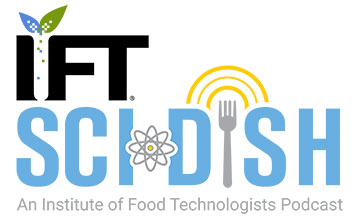Join host Matt Teagarden as he dives into the new FDA rule on food traceability with industry experts. Discover how this rule impacts foodservice and what it means for you.
Tune in to learn about the FDA’s new food traceability rule, which mandates detailed record-keeping and rapid information sharing during food safety issues. Our experts will discuss the practical challenges of implementing these requirements, including the technological adaptations and strategic planning needed for compliance.
You’ll also get valuable advice on maintaining food safety and quality amidst evolving standards and understand the complexities of standardizing data and systems across a vast network of suppliers and distributors. Plus, hear predictions on whether the traceability rule will expand to cover more products and the importance of collaboration to ensure compliance and improve food safety.
This episode is a must-listen for food service professionals, those working with traceability, or anyone looking to navigate the new regulatory landscape. Don’t miss out on this opportunity to stay ahead of this new rule!
Speakers:
Andrew W. Kennedy:
Mr. Kennedy is a global leader in food traceability technology, standards, and regulations. He co-leads New Era Partners, a division of iFoodDS, dedicated to assisting companies with the FDA Food Traceability Rule, FSMA 204.
Mr. Kennedy’s prior experience includes three years at the FDA in the Office of Food Policy and Response developing food supply chain traceability and recall systems, public-facing programs, and regulatory policy, including FDA’s Final Rule for Food Traceability and Tech-enabled Traceability, the first core element of the New Era of Smarter Food Safety. At FDA, Mr. Kennedy led the team that developed 21 Forward, used by FDA’s Foods Program to assist with COVID-19 vaccine distribution, monitor the impact of the pandemic on the U.S. Food Supply Chain, and assist with the powdered infant formula crisis response.
Prior to his work at the FDA, Mr. Kennedy led IFT’s Global Food Traceability Center and co-founded FoodLogiQ (acquired by Riverside). He co-convened traceability standards development working groups for GS1, the Produce Traceability Initiative and the Global Dialogue on Seafood Traceability. With Jennifer McEntire, United Fresh Produce Association, Mr. Kennedy edited “Food Traceability from Binders to Blockchain,” published by Springer.
Mr. Kennedy began his career at Accenture in New York City, then helped grow two startups, Clarkston – an early leader in SAP Consulting, and Diba Industries – an innovator in clinical diagnostic precision fluid handling (acquired by Halma, LSE:HLMA). Mr. Kennedy holds an MBA from Duke’s Fuqua School of Business and an A.B. in Economics from Lafayette College.
Charles Leftwich:
Charles Leftwich serves as the Vice President of Food Safety and Quality Assurance for Sysco Corporation, the world’s largest foodservice distributor. In this role he supports Sysco’s Purpose of “Connecting the World to Share Food and Care for One Another” by establishing food safety, product quality, sustainability, and regulatory compliance strategies across the Sysco enterprise. To implement these strategies, Charles leads a team of talented food safety professionals across Sysco’s broadline distribution services, specialty manufacturing locations, and Sysco’s industry leading private label brand program which is renowned for its commitment to the highest product quality and food safety standards.
Charles is a highly-experienced professional in the food safety, quality assurance and regulatory field with expertise in the harvest, manufacturing, distribution, and foodservice industries. He has served on various industry associations’ boards of directors, committees and working groups. He has held positions of increasing responsibility throughout his career and prior to Sysco, Charles led teams in Food Safety and Quality Assurance, Operations and Environmental Health and Safety at Cargill Meat Solutions and Kane Beef. Charles graduated from Texas A&M University with a Bachelor of Science in Animal Science, and a Master of Business Administration from West Texas A&M University.
Katia Noll:
Dr. Katia Noll is the Vice President of Global Food Safety and Quality Assurance at Subway®. Her team of 30+ technical professionals is responsible for supply chain and restaurant food safety, supplier and distributor auditing, product development and quality, and nutrition and regulatory compliance for over 30,000+ restaurants worldwide. Prior to Subway®, Katia was a Senior Scientist with the Food Safety and Microbiology group at Kraft Foods/Kraft Heinz. During her time with Kraft, she led food safety program and policy development for internal and external manufacturing facilities and was responsible for product food safety across a broad variety of food categories within their portfolio. Before joining Kraft, Katia was a postdoctoral researcher funded by the Bill and Melinda Gates Foundation and the National Institute of Health, where she focused on the development of natural antimicrobials and their applications in human health. She earned a Bachelor’s degree in Molecular and Cell Biology from the University of Connecticut and holds a Ph.D. in Microbiology and Molecular Genetics from Rutgers University. Professionally, Katia is a longtime member of the International Association for Food Protection and a former member of the North American Advisory Board for BRCGS. She also holds PCQI and HACCP certifications and has extensive experience with USDA, FDA, CFIA, and international food safety regulations. Personally, Katia is a busy mom of two young children who spends as much time as possible outdoors, either running, gardening, or hunting for sea glass on her favorite local beach.
Podcast: Play in new window | Download


